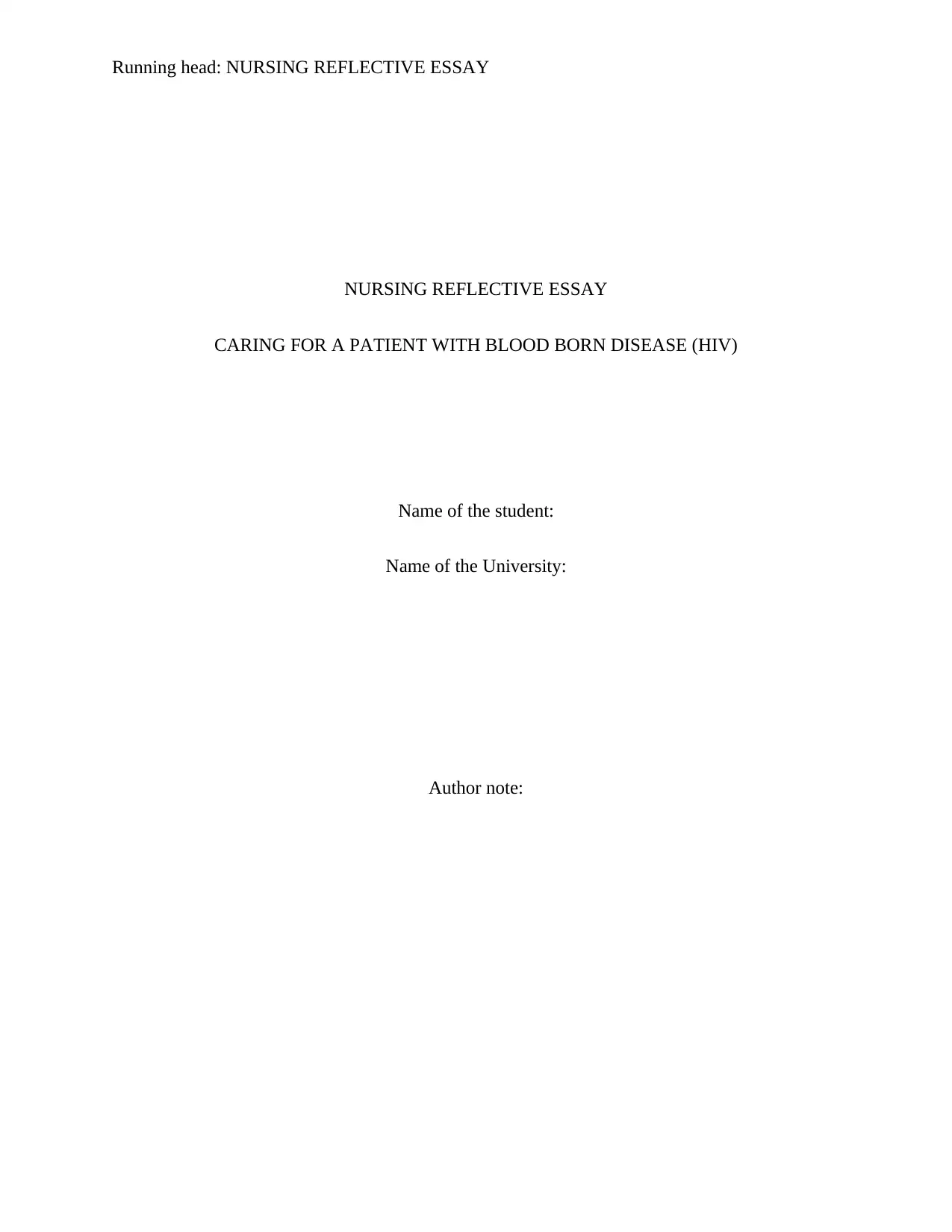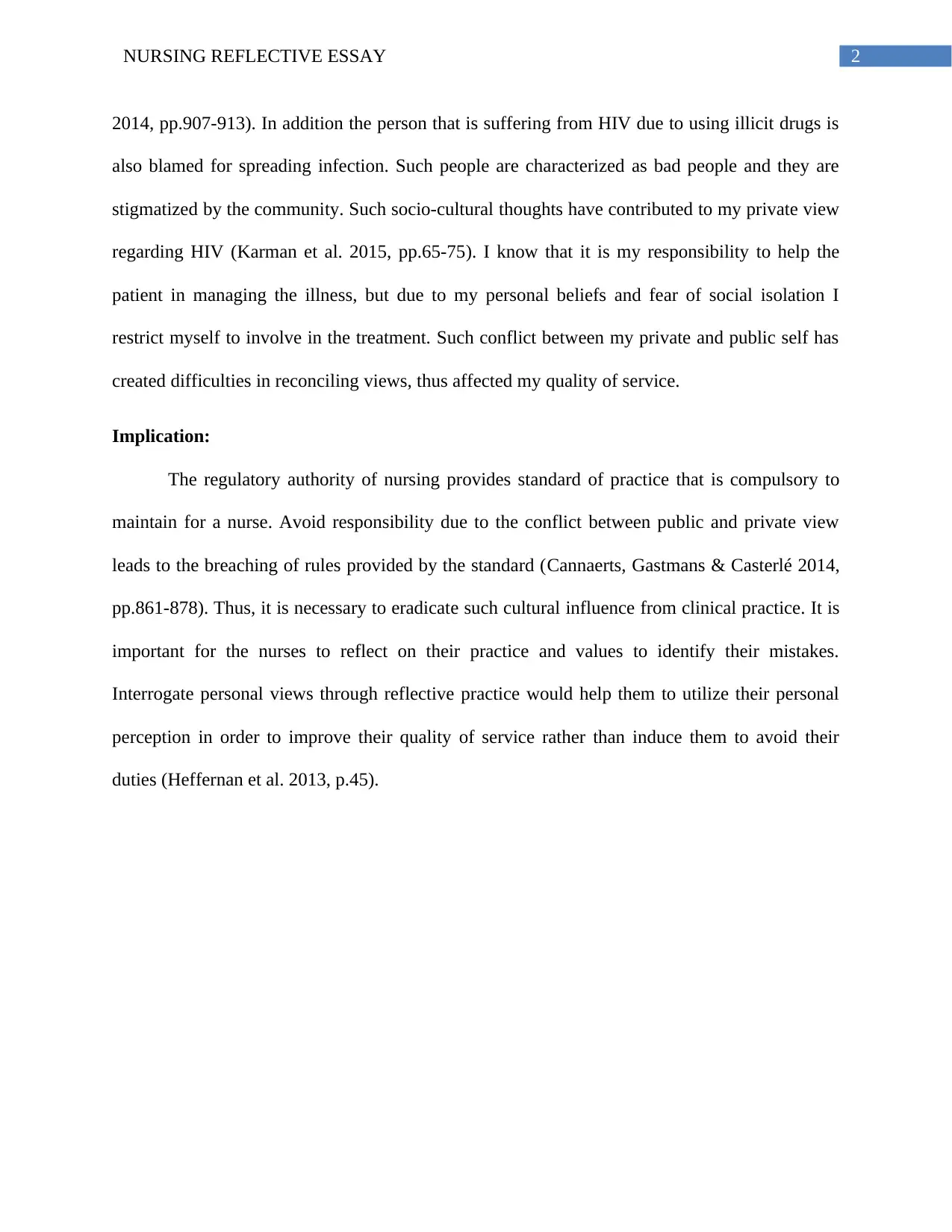University Nursing Reflective Essay: HIV Patient Care and Values
VerifiedAdded on 2023/06/10
|4
|951
|483
Essay
AI Summary
This nursing reflective essay explores the challenges a nursing student faces when caring for patients with HIV, revealing a conflict between their personal beliefs and professional obligations. The introduction highlights the importance of providing equal care, while acknowledging the student's hesitation due to fear of infection and societal stigmas surrounding HIV. The essay delves into the conflict between the student's public view, which mandates providing essential care, and their private view, which is influenced by cultural stigmas and personal fears. The student identifies specific care processes that cause discomfort, such as those involving potential exposure to bodily fluids. The essay further discusses how societal perceptions of HIV, often associating it with specific behaviors or groups, contribute to the student's reluctance. The implications of these conflicts on nursing practice are addressed, emphasizing the importance of adhering to professional standards and the need for nurses to reflect on their values. The essay concludes by advocating for the continual interrogation of personal beliefs to improve the quality of care and reconcile conflicting views. The student uses literature to support arguments and explores the impact of personal values on patient care.
1 out of 4











![[object Object]](/_next/static/media/star-bottom.7253800d.svg)